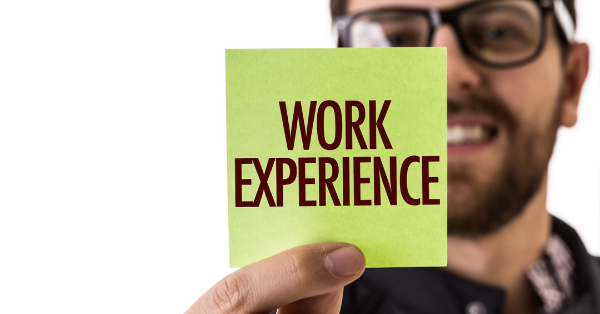It’s the famous jobs market catch-22 – how do you get engineering experience when you don’t have engineering experience. The problem can be frustrating as roles that don’t require experience are hard to find, very competitive, and difficult to secure.
Plus, the experience you typically need is in a real work situation. In other words, the experience you get in college working on projects will help, but it’s nowhere near enough. You need to be in a commercial environment.
To get into a commercial environment you need experience…
But you don’t have experience…
There are solutions. Before exploring them, however, there are a few things you should be aware of before you start.
The Prerequisites
There are three things you should be aware of before you begin taking steps to bulk out your CV:
- You must be proactive – this means you need to put yourself out there. Simply searching for formal work experience opportunities (placements, internships, etc) is unlikely to be enough. Instead, you’ll need to be forward and you’ll need to ask, remembering that if you don’t ask, you won’t get.
- You’ll need to be resilient – you’re likely to get more no-replies and polite knock backs than successes. Don’t take this personally, though, as you need to push on.
- Get to know the market – This involves researching the companies that employ engineers. Remember, if you can move or are willing to travel, your chances will improve. In addition, it’s important to look at all types of company, including smaller companies. Also, be as direct as possible when making contact these companies. This involves identifying the right person in the company you’re reaching out to and finding their contact details
Where You Can Get Engineering Experience
- Internships – larger companies may have a structured internship programme you can apply to. For smaller companies, however, you’ll need to be more proactive. This involves sending in speculative applications asking for an opportunity.
- Apprenticeships – apprenticeships are more formal than internships and they allow you to earn while you learn. Be prepared, though, as most engineering apprenticeships are hotly contested.
- Placement – you can also try to get a work placement through your college. Speak to your college career office and keep up to date with career office notices and website as companies may advertise their roles through the college.
- Work experience – for many people, this is the best way to get engineering experience. The first thing to note is you probably won’t be paid. That said, you will get new contacts in the industry in addition to the work experience you can put on your CV.
- Temporary jobs – you can also apply for engineering-related temporary jobs, particularly during traditional holiday periods.
Build Up Your Professional Network
In addition to the above, there are other things you can do that will help you get work experience. Building your professional network is high on that list as you never know what can result from knowing a well-placed contact.
Here are some tips:
- Attend college recruitment fairs and recruitment fairs run by other organisations, particularly if they are focused on engineering.
- Don’t just go to the recruitment fairs to walk around, though. Instead, engage with the people at company stands, show genuine interest, and establish a professional relationship.
- Attend lectures and events at college that involve employers in the local area.
- Keep in contact with your lecturer after you leave college.
- Build your professional network on LinkedIn by establishing new connections.
Non-Engineering Experience Counts Too
Non-engineering experience is important as well, remember, as employers want to see you have a broad range of skills. This includes:
- Communication skills
- Team working skills
- Problem-solving skills
- Leadership skills
- Ability to work on your own initiative
- Attention to detail
- Reliability
- Commitment
You can demonstrate all the above with experience in non-engineering jobs or through volunteering at charities, local sports clubs, or community organisations
Final Thoughts
Getting experience when you’re starting out your engineering career can be challenging, but it will reap rewards. This includes getting a full-time job, of course, but getting work experience also increases the skills you have, plus it will help you decide if the job, industry, or type of company is right for you.





